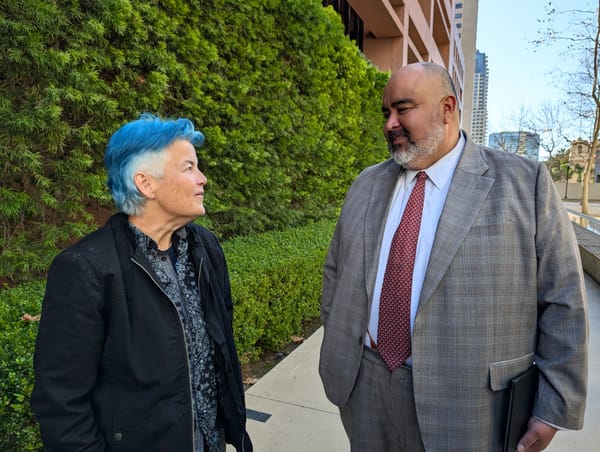Newsletter: ‘Don’t despair:’ Immigration advocates offer advice for creating emergency plans
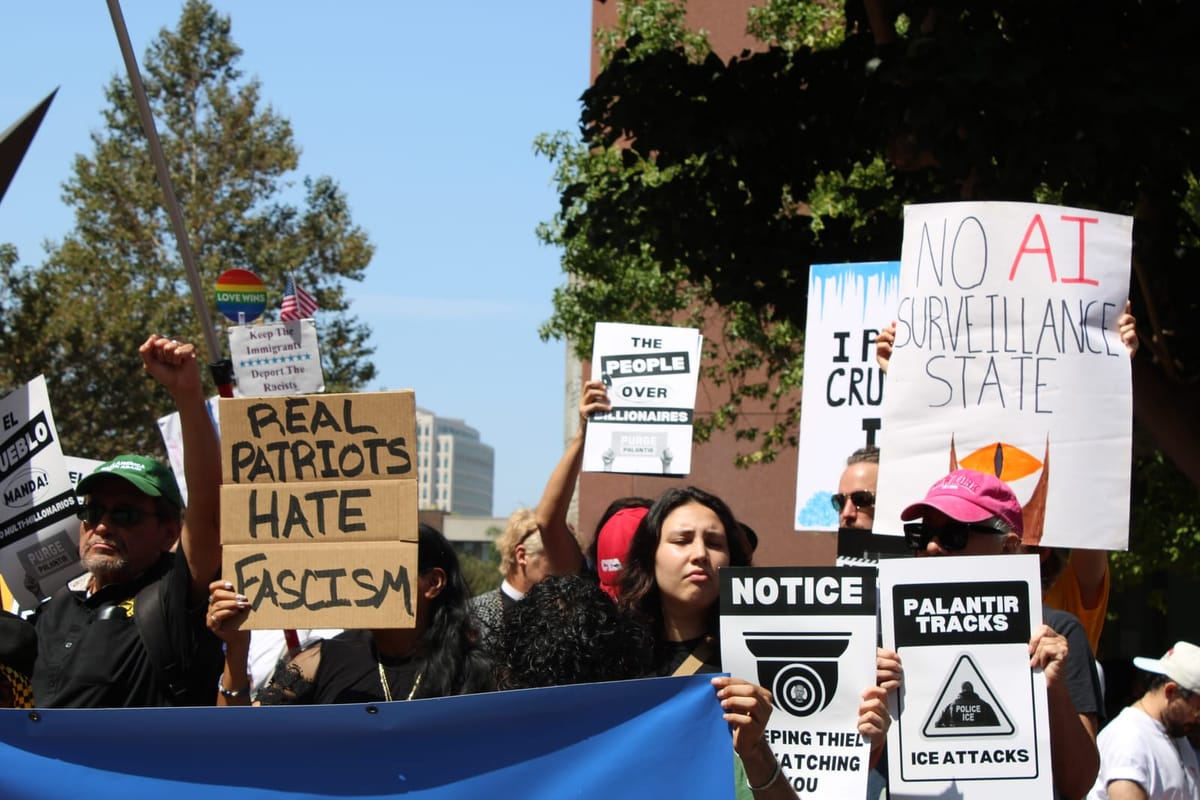
Plus, charges lifted for a U.S. Citizen arrested by ICE in Linda Vista this summer
Sekon everyone,
The U.S. Supreme Court essentially greenlit racial profiling in immigration enforcement earlier this week.
On Tuesday, the high court put a temporary halt on a federal judge’s order barring federal agents operating in Los Angeles from asking people about their immigration status based on factors like race, language or types of work.
Pedro Rios, director of the U.S.-Mexico Border program at the American Friends Service Committee, said the court’s action opens the door for Border Patrol and Immigration and Customs Enforcement officials to target Latino and other immigrant communities with few legal safeguards.
“The violence with which they conduct their operations already have trampled on people's basic civil liberties and constitutional rights,” he said. “It just represents the green lighting of more abusive behavior on the part of those two agencies.”
Alliance San Diego Executive Director Andrea Guerrero said that while this stay may be new, racial profiling in immigration enforcement is not. She already experienced profiling by federal agents, including once when they questioned her for speaking in Spanish during a train ride to Los Angeles.
“For us in San Diego, living in a border region, we've always known racial profiling by border and immigration agents,” she said.
The court’s move may put more people at risk for interactions with immigration officials. We spoke with several groups on the ground about what community members can do to help protect immigrants impacted by the decision.
Unión del Barrio community patrol participant Benjamin Prado said preventing family separation is the top priority. That means staying alert to unfamiliar vehicles in your neighborhood, documenting actions with federal agents and building neighborhood networks of support.
“Don’t despair,” he said. “It’s the importance of building that solidarity at the very local level with your neighbors, work colleagues, school friends and family, just building a network of communication.”
Guerrero, Prado and Rios shared guidance to help families and individuals with immigration status stay safe, as well as ways for San Diegans to support their neighbors.
Establish an emergency plan
Families with immigration status should prepare emergency plans, just like they might to get ready for natural disasters. What that looks like for each family might be different, but things to consider include:
- Giving your family a list of emergency contacts.
- Identify who will care for children, elders, pets or other loved ones if the primary caregiver is detained.
- Ensuring the fill-in caregiver knows about medications, food guidance or other factors.
- Gathering all important documents and keeping them in one place.
- Deciding on a safe place to gather if going home is no longer an option.
- Password protecting digital assets like cell phones and computers. Officials can easily and legally access devices that use fingerprint and facial recognition.
- Knowing how to find detained loved ones by searching the ICE Detaineer Locator system and the San Diego County Sheriff’s Who is in Jail site.
- Talking to your family about the plan.
What to do when approached by federal agents
Regardless of immigration status, it is important to know your rights and what to do if approached by federal agents. You should:
- Notify someone immediately if you think you’re going to be approached by federal agents.
- Record the interaction.
- Stay calm and don’t run away. Sudden movements or trying to leave the scene can escalate the situation.
- Ask if you’re being detained. If not, ask, “Am I free to leave?” and calmly walk away.
- Exercise your right to remain silent. You don’t have to answer any questions about where you were born, your immigration status or how you entered the country.
- Don’t show false documents or lying. Providing fake information or paperwork can create more legal problems.
- Request a warrant before a search. If agents want to search you, your car or home, ask to see a judicial warrant signed by a judge. You’re not required to consent to a search based on an administrative ICE warrant alone. Review the National Immigration Law Center’s guidance to see the difference between the two.
- If you feel unsafe, focus on observing. If you can’t safely challenge an agent, take mental notes or record details later about the time, location, number of agents, their behavior and what they said.
- Ask for a lawyer. You have the right to speak with an attorney before answering any questions.
How to support neighbors
For community members who want to support their friends, family and neighbors, here are ways to help:
- Be a witness to any stops by agents, calmly observe and record details like the time, place and the interactions. You have a legal right to record, but keep a safe distance.
- Provide backup care for children, elders or pets if a neighbor is detained.
- Volunteer with or donate to local organizations, including Alliance San Diego and Unión del Barrio, that provide legal aid, hotlines, community support or family preparedness workshops.
- Stand in solidarity with the immigrant community by getting involved with activist movements, escorting people to their immigrant court proceedings and attending community meetings.
- Distribute “Know Your Rights” and “Identifying ICE” materials, like those offered by Alliance San Diego and Unión del Barrio.
- Urge Congress and the Department of Homeland Security to protect the rights of immigrants by calling representatives, sending letters, submitting public comments and/or participating in public hearings on immigration policy.
- Be aware of changes in your community and know the vehicles that are normally on your block. Take note of any unfamiliar vehicles with dark, tinted windows, which can be an indication of ICE surveillance.
— Lauren J. Mapp
At High Tech High in Chula Vista, students suited up in gowns, gloves and masks to practice stitches, CPR, nail trims and even veterinary forensics. The daylong workshop led by blendVET aimed to boost racial diversity in veterinary medicine, which is the least diverse medical field.
— Lauren J. Mapp

The federal government has dropped charges against a U.S. citizen arrested by ICE in July in Linda Vista and accused of assaulting a federal agent. The U.S. Attorney's office already dropped similar charges against the Guatemalan man whom officials had initially targeted that day for an immigration arrest. Two other U.S. citizens arrested that day still have cases pending.
— Kate Morrissey
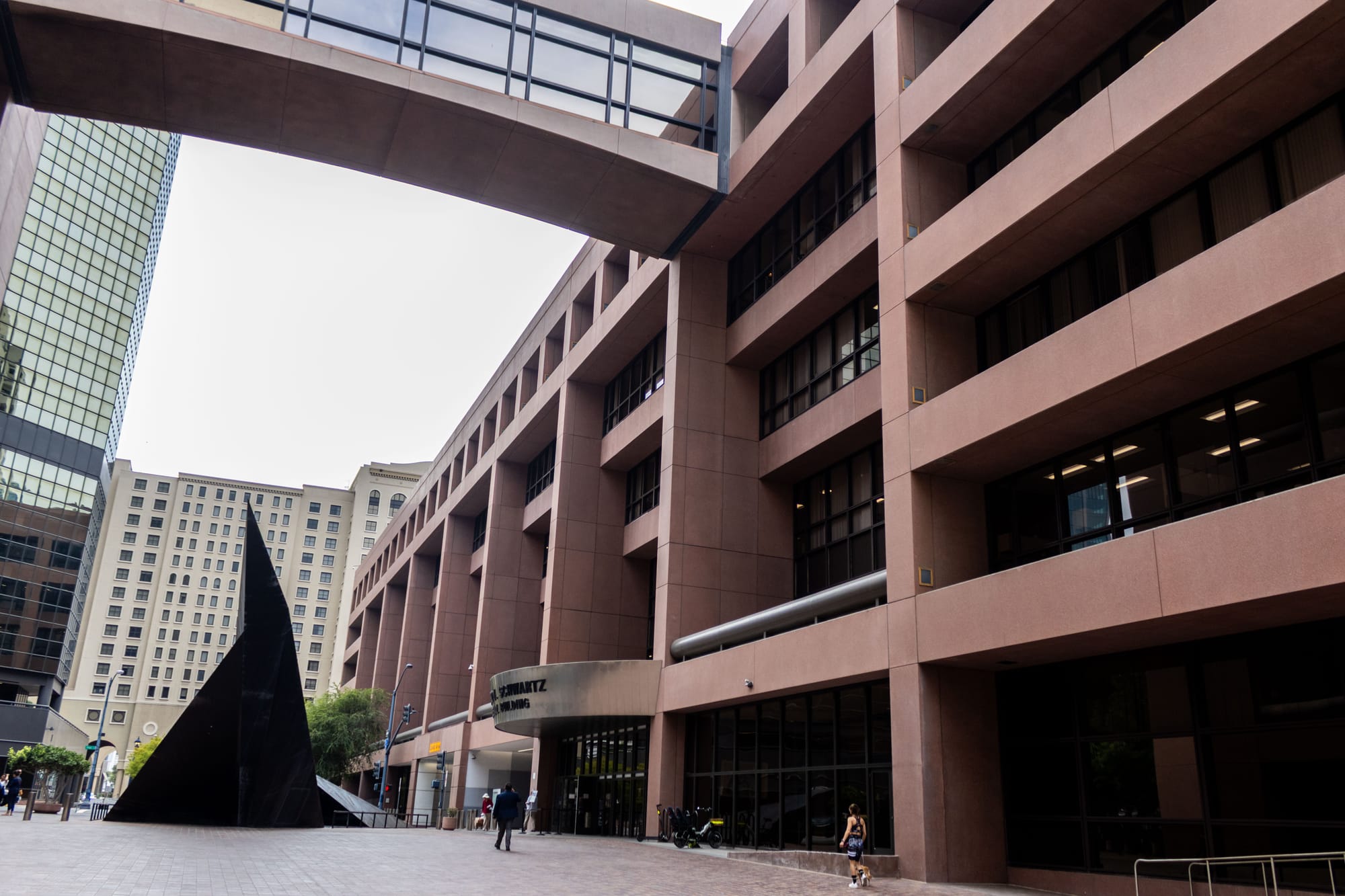
San Diego advocates are joining a statewide push to end the incarceration of girls, transgender and non-binary youth. In a standing-room-only forum in City Heights, formerly incarcerated mentors and community leaders called for shifting resources from detention to community-based support. With only 25 girls currently held in juvenile detention in the county, organizers say the number should be zero — and they're asking county leaders to commit to making that a reality.
— Lauren J. Mapp
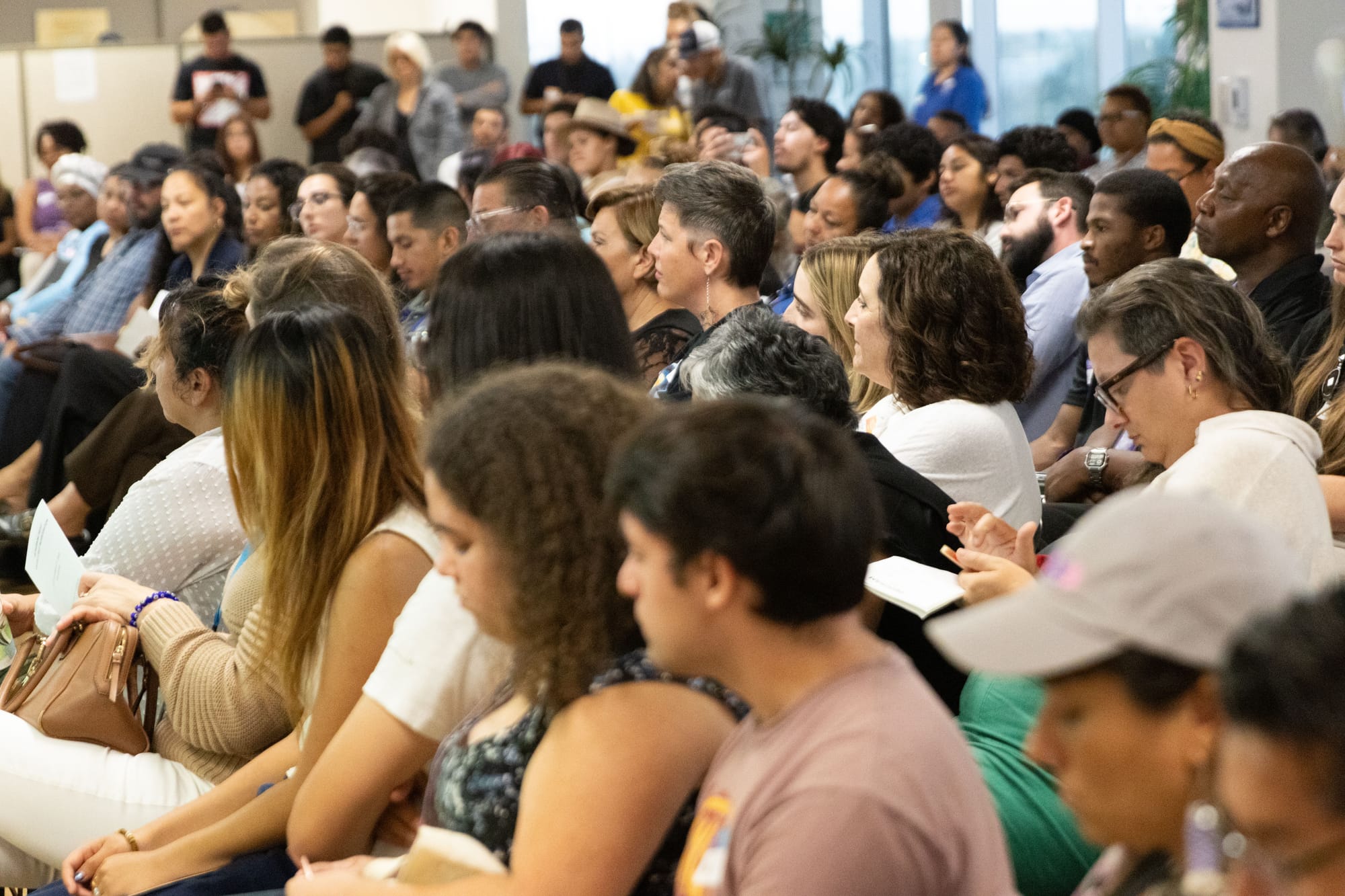
Ankle monitors in immigration court
ICE has been arresting certain people after their immigration court hearings nationwide for months. A couple of weeks ago, volunteers who monitor ICE activity at the San Diego Immigration Court noticed ICE officers were handing out letters in the court hallway, and that officers were putting ankle monitors on those who received the letters.
— Kate Morrissey, Capital & Main
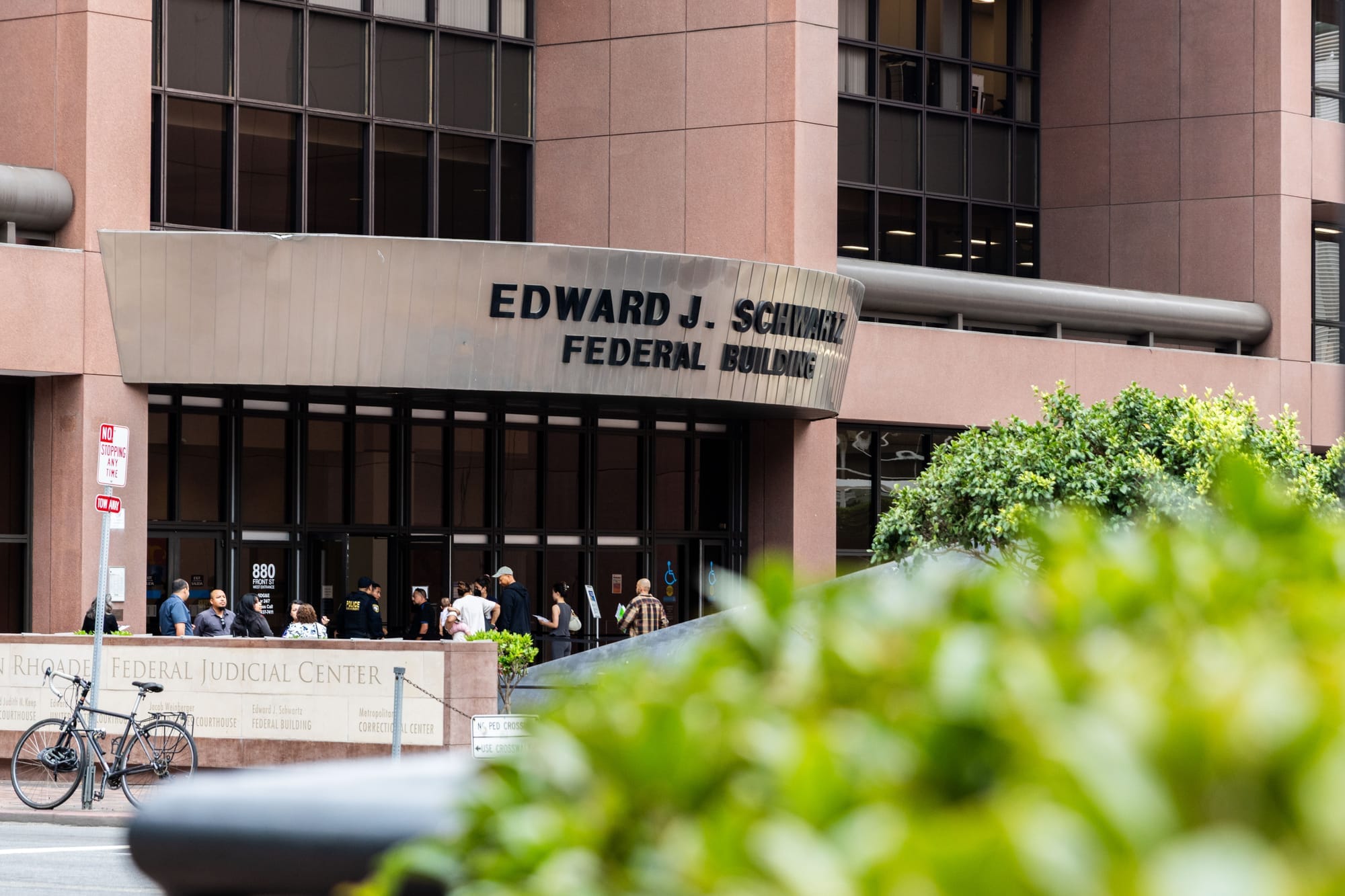
ICE raids impact businesses and workers
California — and other states across the country — rely heavily on the labor of immigrants. Many of those workers are living in fear of Immigration and Customs Enforcement raids, making it harder to do their jobs. Experts say this fear is restricting the rights of all workers and hurting the state’s broader economy.
— Kate Morrissey, Capital & Main
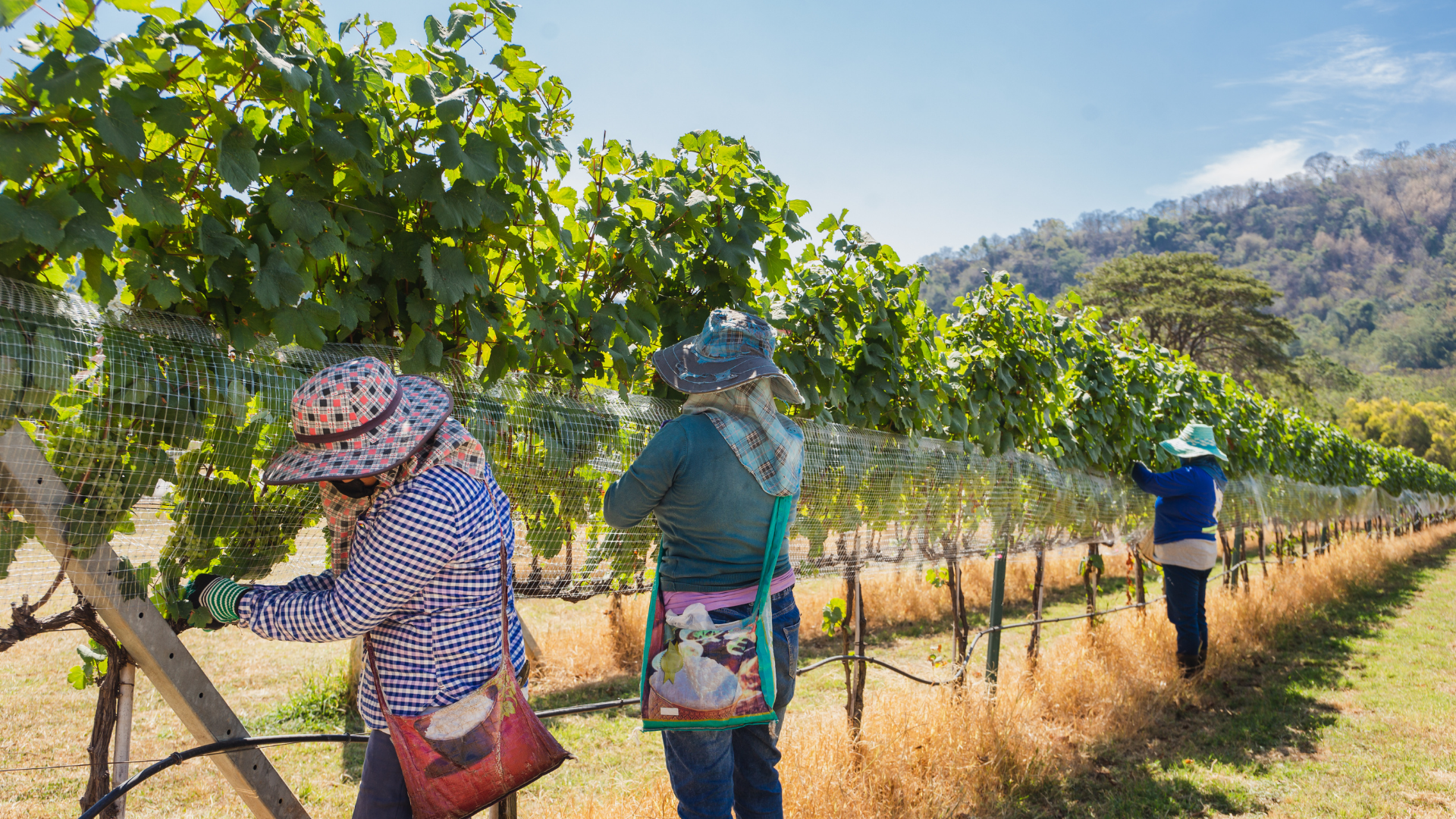
California unions remain steady
Over the last two decades, the Golden State’s union numbers have held relatively steady, and they’ve remained well above the national average. The state’s unionization rate — the percentage of all workers who are covered by a union contract, even if they’re not members — stands at 16.3%, more than five points higher than the national average, according to a new report by labor researchers at multiple University of California campuses.
— Story by Mark Kreidler, Capital & Main

Looking for something to do in San Diego County this weekend? This week's events include a powwow hosted by the Sycuan Band of the Kumeyaay Nation, the Del Mar Wine and Food Festival, a family gardening workshop and a Sapphic Book Club book swap.
— Lauren J. Mapp

Other news
The deadline for San Diego property owners to set up accounts for their trash and recycling pickups is Sept. 30. New gray bins will be delivered by the city starting next month, the city said.
The San Diego County Board of Supervisors voted to expand its Immigrant Legal Defense Program to also support unaccompanied children, KPBS reported.
Upcoming Events
Sept. 13
Sycuan Powwow: The Sycuan Band of the Kumeyaay Nation is holding its annual powwow at the Sycuan Casino and Resort. The three-day gathering features dancing, singing, socializing, crafts, arts and food. Sept. 12-14, 12 p.m. to 10 p.m., 5577 Dehesa Road, El Cajon, CA 92019
North Park Vegan Market: More than 60 vendors will sell vegan tacos, lumpia, cookies, dumplings and other dishes during the monthly market on the second Saturday of each month. Noon to 4 p.m., North Park Mini Park, 3812 29th St., San Diego, CA 92104
Soulcraft Saturday: The Block Club is hosting an arts and craft night in its space on Imperial Avenue. The event is free to attend if you have your own craft project and supplies you’ll be bringing with you or $12 to participate in the group session with provided materials. Tickets can be reserved online. 5 to 7 p.m., 6403 Imperial Ave., San Diego, CA 92114
Sept. 14
The Big Gay Picnic & Book Swap: The Big Gay Picnic hosts a picnic in honor of Sapphic September in Balboa Park. The picnic includes a 90s outfit-themed book swap from the Sapphic Book Club followed by an after party at Gossip Grill. 11 a.m. to 4 p.m., Balboa Drive & Quince Street, San Diego, CA 92103; 3 to 8 p.m., Gossip Grill, 1220 University Ave, San Diego, CA 92103
Sept. 16
Neighborhood Law School: The Earl B. Gilliam Bar Association is hosting a free legal seminar on estate planning at the Malcolm X Library. This is part of a 6-week program providing free legal information to the community and is the last seminar of the series. For questions, email EBGNLS@gmail.com. Sept. 16 from 6 to 7:30 p.m. at Malcolm X Library, 5148 Market St., San Diego, CA 92114
Want to support our efforts to bring Daylight to San Diego?
- Subscribe to our newsletter so you’re the first to know when we publish content or announce upcoming listening sessions.
- Consider making a tax-deductible donation to support our work on Givebutter. A huge shoutout to everyone who has made a donation toward our goal of raising $50,000 this summer to support our journalism.
- If you have an idea or pitch that you think will interest other San Diegans, tell us about it!
- Do you have an upcoming event to promote? We can add it to our events calendar! If you are hosting public events, let us help you get the word out by using our submissions form.
- We are continuing to accept submissions to our Daylight San Diego Community Survey to help shape our work.
- Hit the follow button on our social media platforms (Instagram, TikTok, X/Twitter, Bluesky, Facebook and YouTube) and share our page with your own community within the region.





